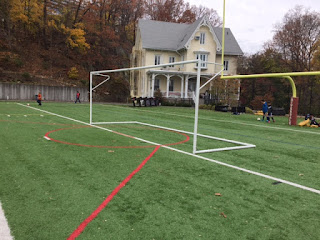When I told my mother I was going to be a teacher she exclaimed, "Ay
Dios! Voy a quedarme pobre por el resto de mi vida!" Translation: Oh God! I will be poor for the rest of my
life!
I was not
surprised at her reaction to my news. I have cousins in the profession in
my mother's native country of Ecuador. From her point of view teachers
are not respected because they are poorly paid. The average salary of a
novice teacher in Ecuador today ranges from $300 - $500 dollars a month.
You can make more if you teach English and work in a private school.
Surely, my mother's sentiments originated from having seen family members
struggle and did not want the same for me.
The notion that the teaching profession must be filled with
attractive money and salaries to lure the best talent won't work. No
incentive program with deep pockets can instill that innate desire for service,
that passion to learn from and with others, that love to be with children, and
take on (and rise above) the many daily challenges of teaching. Money
will not make people enter and, more importantly, stay in the profession.
College students will be more likely to enter the teaching
profession because they had a significant learning experience that propelled
them to choose even when that profession may not be very welcoming to newcomers
today. Something touched them to want to help children learn. That
something was probably a teacher.
I say this because this is what motivated me to choose a career
in education. I had one adult (outside of my family) in my life that
believed that I can do it. Her words, her every action showed me that I
could learn, I could create, I could accomplish my goals, and that I was special.
She also corrected me over and over again when I made mistakes. She
instilled in me a deep belief of self-confidence and resiliency. And when
things got bad at home, she noticed, and took me aside and counseled me.
She listened and demonstrated care.
The author with his
favorite teacher Nancy Myers-Alvarez.
Ask a teacher today why they wanted to become a teacher and not
one will tell you it was solely because of money. Not one. Because
money does not move us to the profession. It may provide comfort and security
but that's not the real payoff.
Its incredible that teachers are not valued for their efforts
and that this discussion of incentive programs has to be had again and again.
I wouldn't be surprised if there is a presidential candidate devising a
plan that includes incentives for a new generation of teachers and address this
recent high demand for teachers.
School districts will always scramble to hire the best prepared
and grant them their own incentives based on experience and skill. Teachers can
add to their salaries by taking on additional duties as after school tutors,
athletic coaches, extra curricular activities and club advisors. There is
always something extra that needs to be done. I dare say that taking on
all these extra jobs, if granted, will help. Teachers, and I know I did
when I taught, still struggle. That's a fact they all live with.
Yet, they show up everyday and pull through and do their job. They
do their job and then some because money is not the payoff.
The payoff is:
1.Knowing you helped a
student learn something they did not know before. Their reaction to this new
awareness is pure happiness. One is privileged to be a witness to this
life event.
2. Creating a safe place; an
environment where children can think, share ideas, create, question, and make
mistakes.
3. Shaping the future. That's what your students are.
4. Growing and learning with students. The energy that students give
off is infectious and makes you want more and more. People say working with
children keeps you young. I say it keeps you alive!
5. Working and learning with other like-minded
educators. Teachers
need community like everyone else.
6. Overcoming challenges on a daily, weekly, monthly
and yearly basis. A
special payoff is when you overcome a big challenge, especially when it will
benefit children.
As I stand in the hallways of my school in the morning while
parents/guardians drop off their children, I wonder how many of my students
will choose to be teachers. Then I wonder how many will announce their
decision to their parents,who only want the best and wish that they will
struggle less than they have to. Then I wonder about those who will not
be deterred and will forge ahead with their decision. Wondering about
these few who will make this decision to teach is my payoff.
What's your payoff?
Please share!








